
Bianca Balala sits inside her small, entirely pink house in Zamboanga del Sur, the Philippines. She first heard about Dr Thep through a friend who encouraged her to look up his clinic online. Some bad reviews made her initially skeptical of choosing Thep as her GCS doctor.
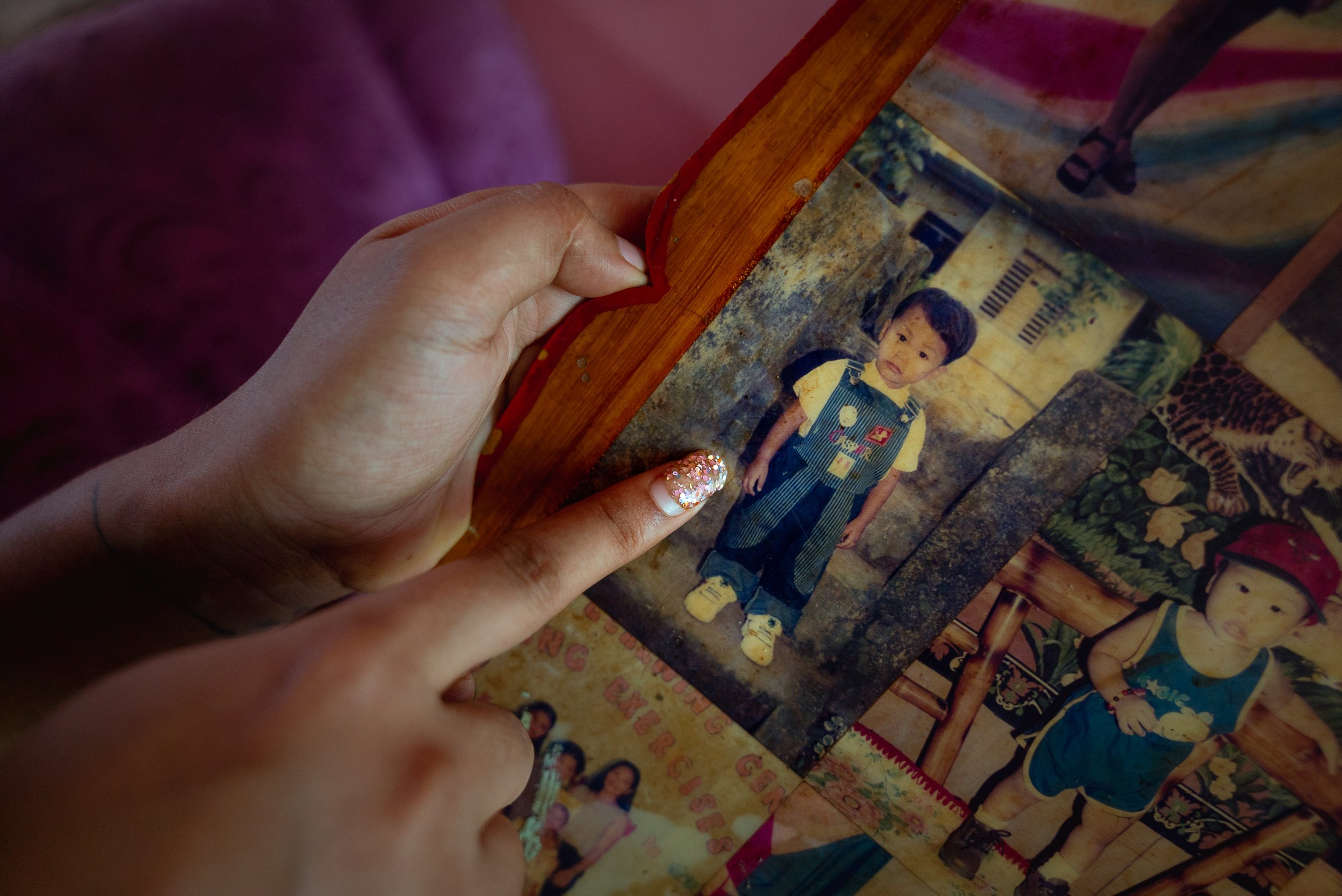
Bianca points to an old photo of herself as a child. When Bianca was about three-years-old, she would wrap a handkerchief around her head to mimic long hair and loved wearing dresses.
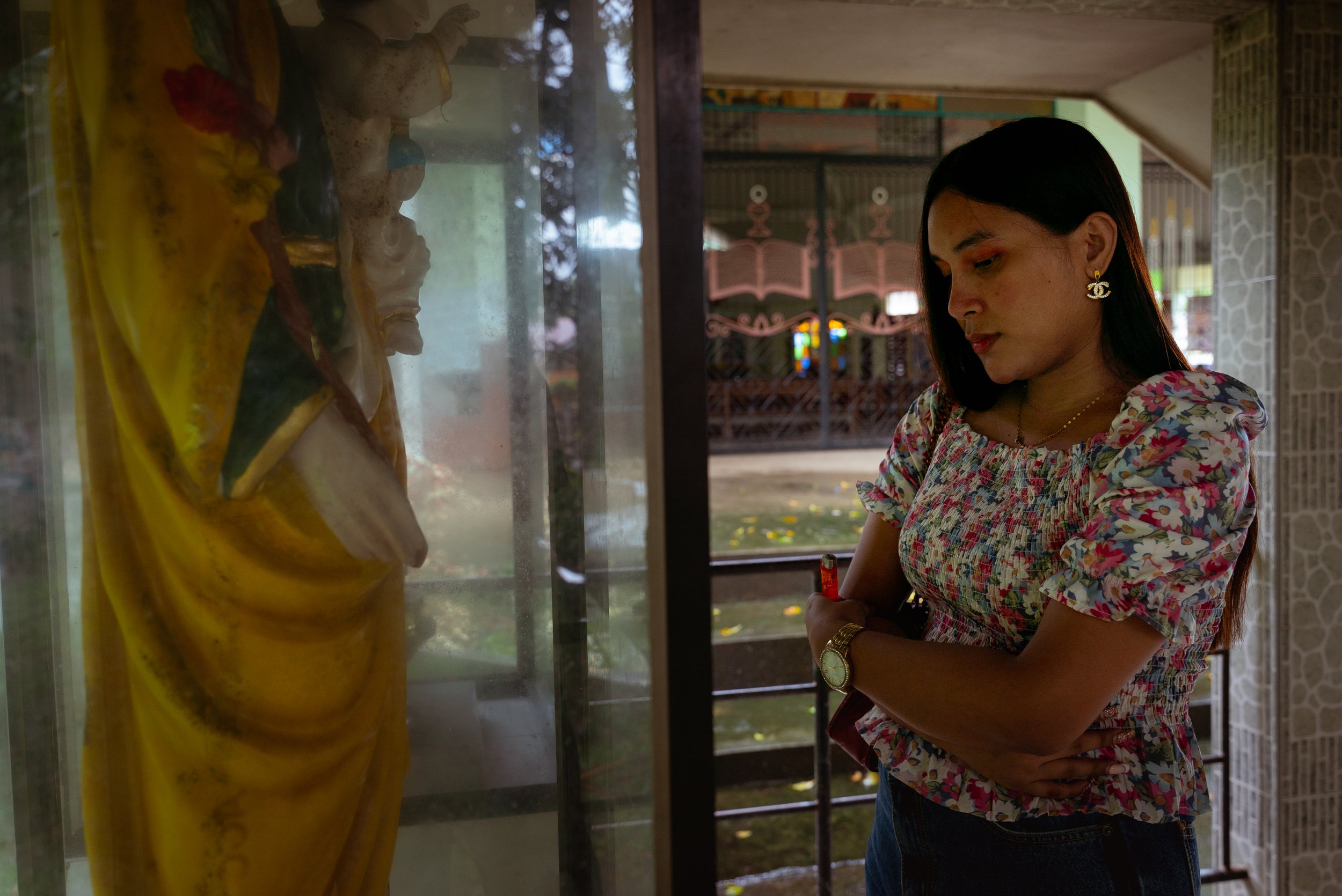
Bianca in a moment of prayer outside her local church in Zamboanga del Sure, the Philippines. She was raised Roman Catholic; today, she refuses to enter the main church out of respect.
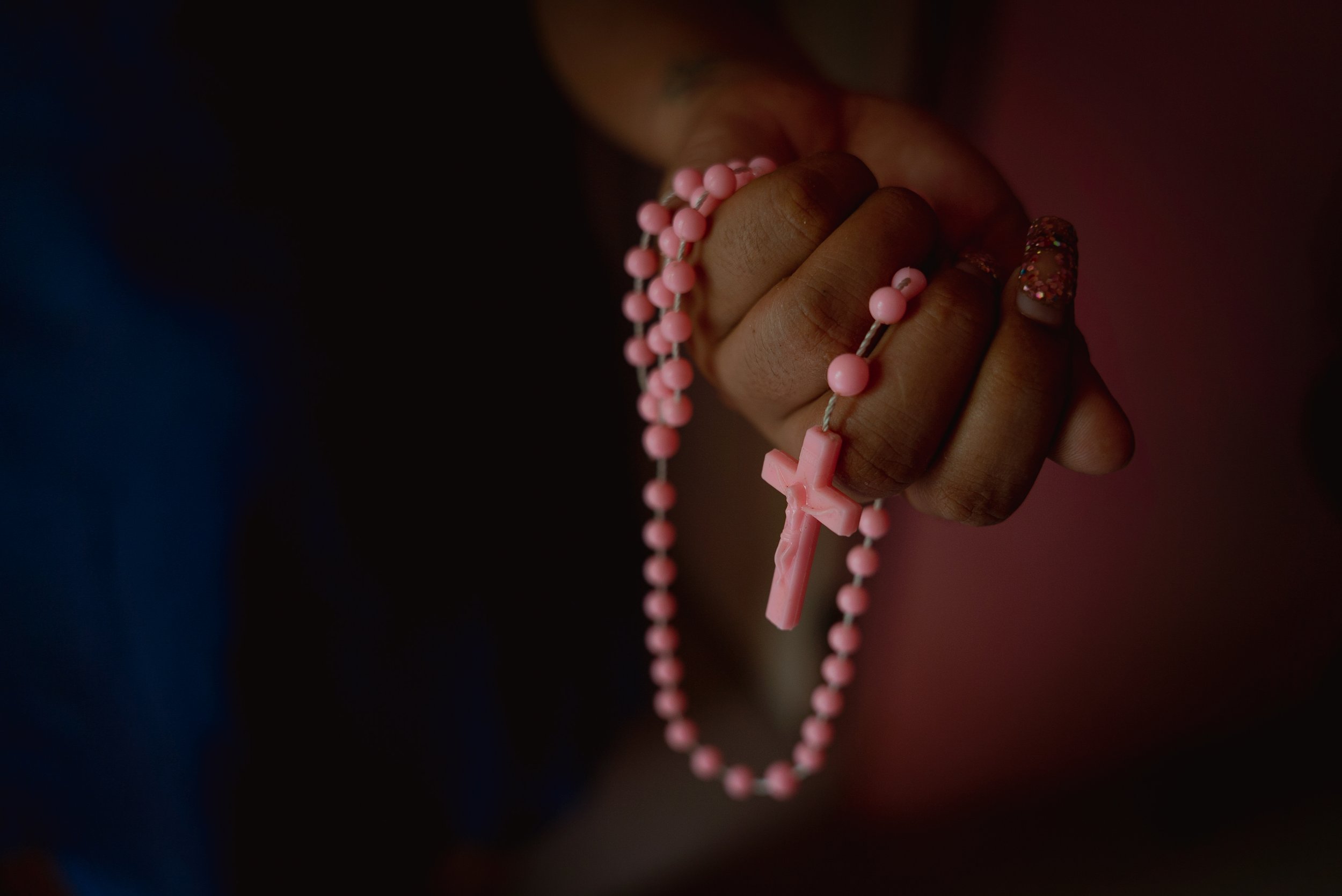
Bianca Balala holds a pink plastic rosary, given to her by her mother on the morning that she left her hometown in Zamboanga del Sur to travel to Bangkok. Bianca would later sneak the rosary into the pocket of the dressing gown she wore in Dr Thep’s clinic during her operation. She says her faith helped her through her GCS experience.

Bianca outside her pink house in Zamboanga del Sure, the Philippines

Bianca in the back of a car watches her home town of Zamboanga del Sur from the window. Traveling to Bangkok for GCS would take her the best part of a day.

The reception area of Pratunam Polyclinic where Dr Thep and a receptionist watch Thai soap operas on the television set, Bangkok, Thailand.
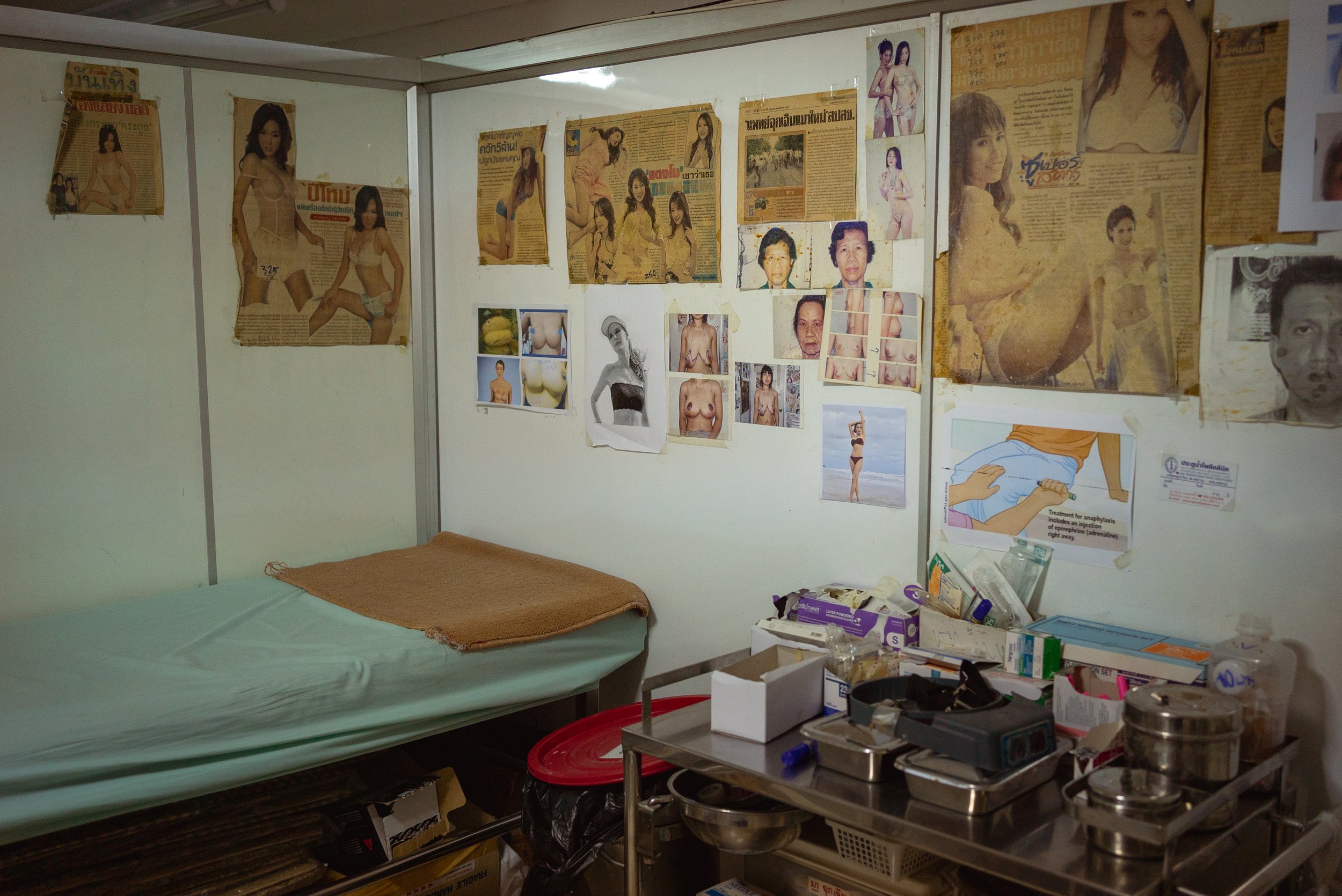
A consultation room at Pratunam Polyclinic where old newspaper clippings of past clients and before-and-after photos have been taped to the partition walls, Bangkok, Thailand.
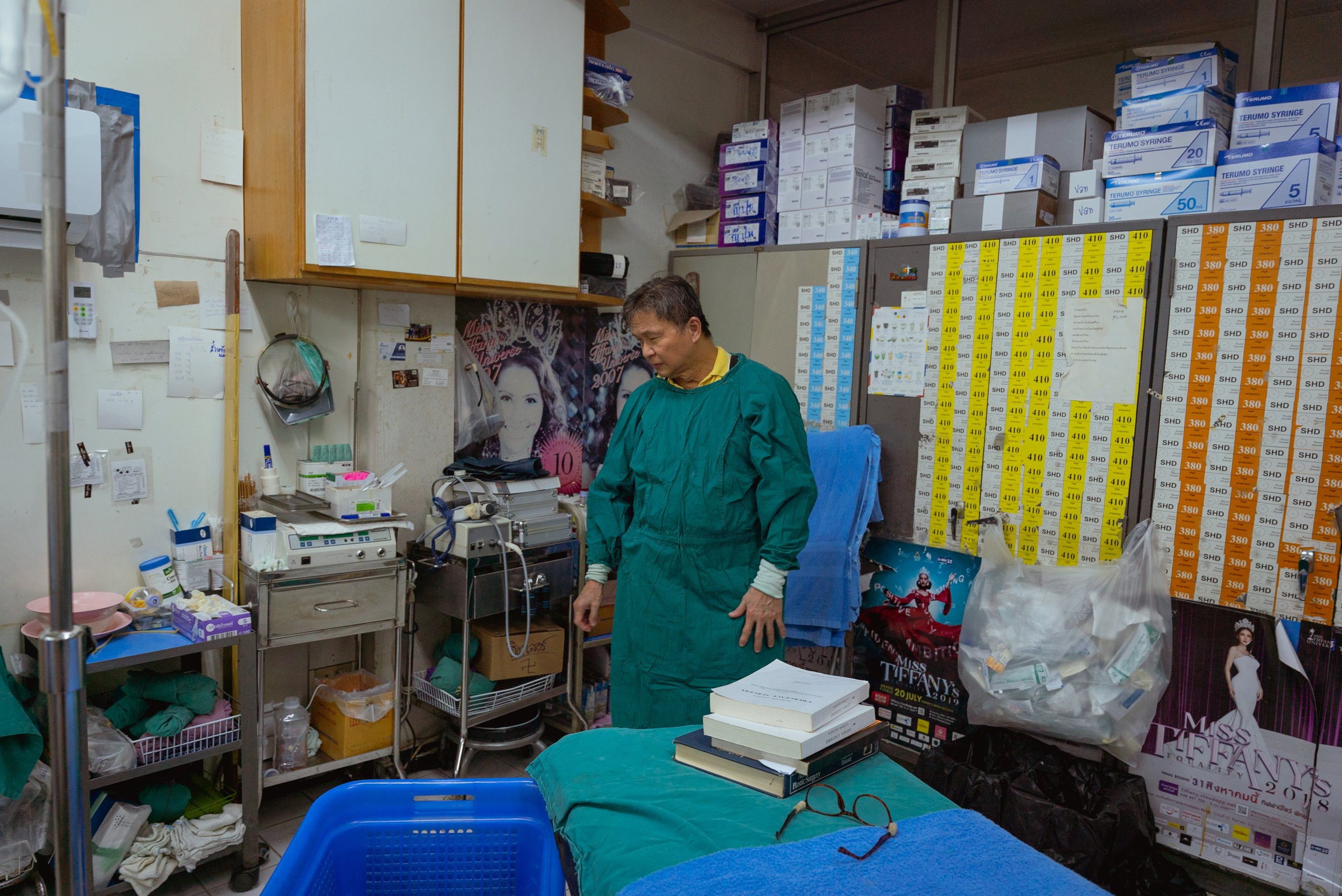
Dr Thep Vechavisit in the operating room at Pratunam Polyclinc, Bangkok, Thailand
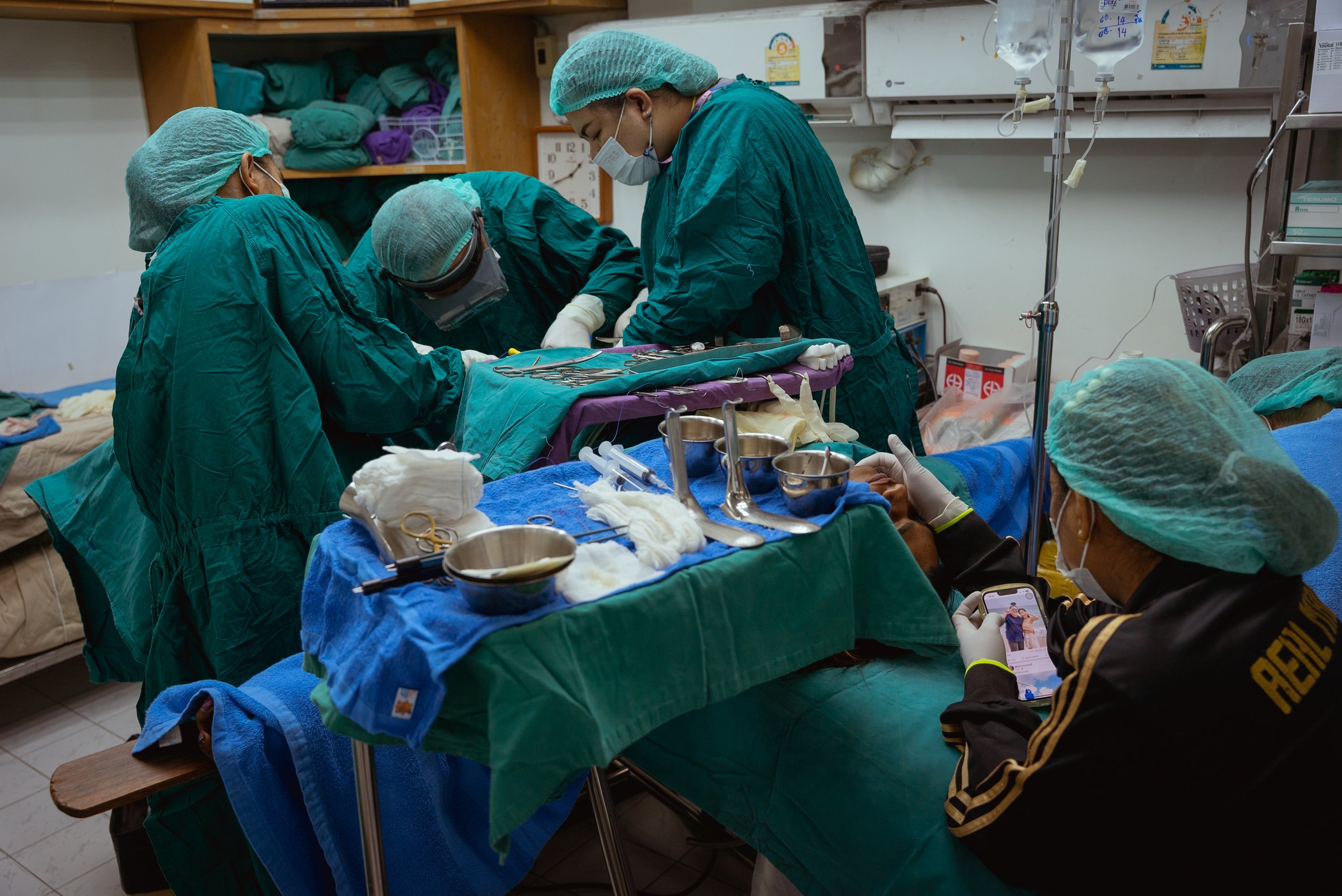
During a gender confirming vaginoplasty surgery, a member of Dr Thep’s staff scrolls through social media on her phone. Of the 15 staff at the clinic, only two of Dr Thep’s staff are qualified nurses; the rest have no formal medical training.
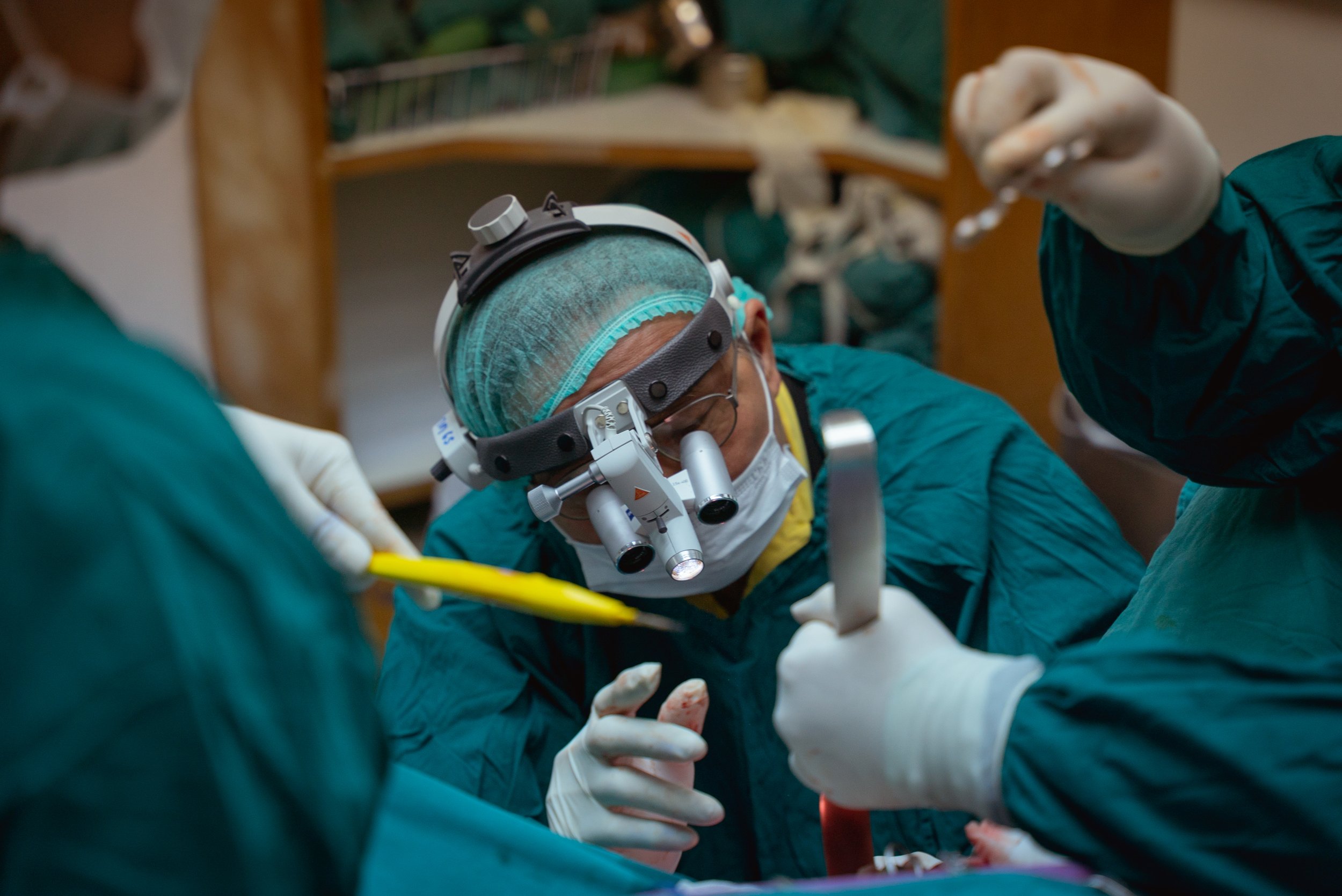
Dr Thep Vechavisit performs gender confirming vaginoplasty surgery at Pratunam Polyclinic supported by two nurses.

Dr Thep Vechavisit performs gender confirming vaginoplasty surgery at Pratunam Polyclinic supported by two nurses and various other staff members.
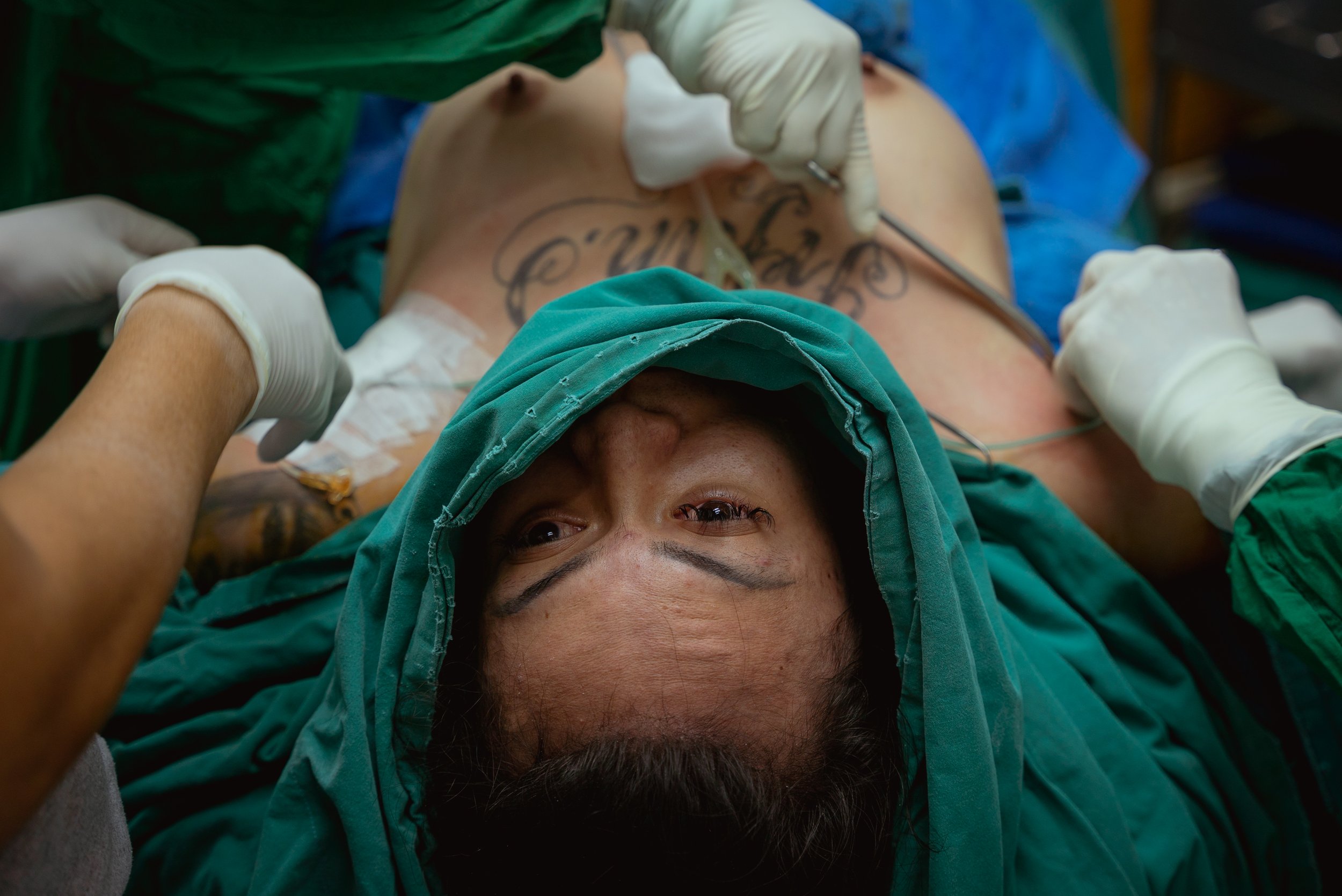
A trans patient receives gender confirming breast augmentation surgery at Pratunam Polyclinic. One way that Dr Thep is able to keep his costs down is by using local anaesthesia and sedation rather than general aesthetic.

A patient is wheeled into the recovery ward on a steel table in Pratunam Polyclinic, Bangkok, Thailand.

A patient rests in the recovery ward at Pratunam Polyclinic, surrounded by Miss International Queen posters taped to the walls. Some of Dr Thep's clients are contestants at trans beauty pageants in Thailand and elsewhere in the world. He also sponsors some of these events.

Lunchtime at Pratunam Polyclinic; Dr Thep often orders Pizza Hut pizza and KFC buckets of fried chicken for the staff to enjoy, Bangkok, Thailand.

Medical trash accumulates in the room next to the patient waiting room at Pratunam Polyclinic, Bangkok, Thailand.

Bianca on her phone at Fukelya, an informal post-surgical hostel. “The term 'Fukelya' means 'pussy' in the Philippines,” said Simon Po II, the proprietor of the hostel. “It's become very catchy. It's like gay lingo.” Almost all of Fukelya’s customers are from the Philippines.

Bianca and a roommate who also had GCS at Pratunam Polyclinc lie in a dorm room at Fukelya, their catheters leading to a shared bucket on the floor between them. After her GCS, Bianca was discharged after three days and taken to Fukelya.

One of Bianca’s cousins climbs up onto the parking lot roof to pick a soursop fruit from one of Bianca’s fruit trees, Zamboanga del Sur, the Philippines.
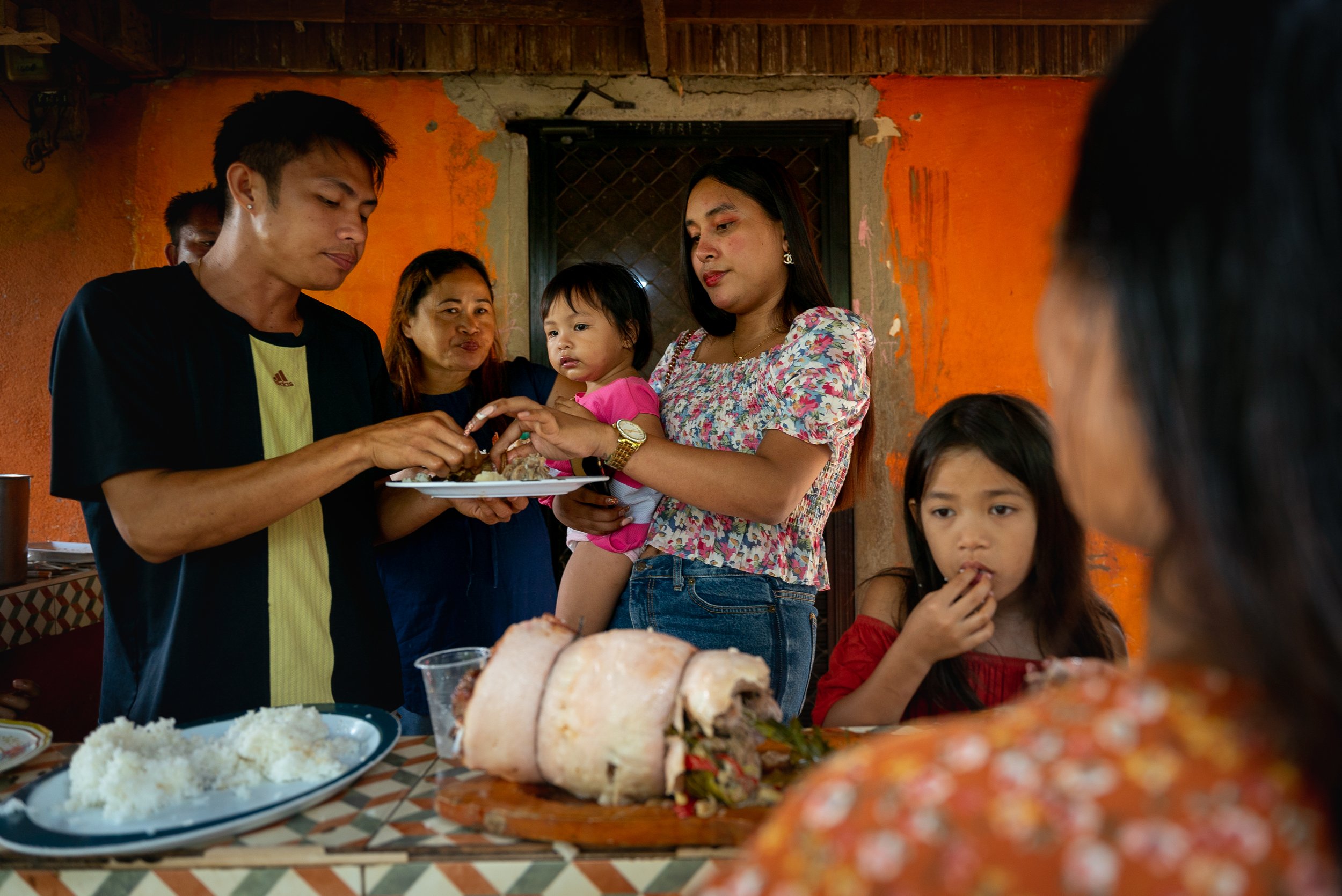
Bianca and her family enjoy a lechon lunch at home in Zamboanga del Sur, the Philippines.

Bianca looks after some of her young cousins, nieces and nephews at home in Zamboanga del Sur, the Philippines.
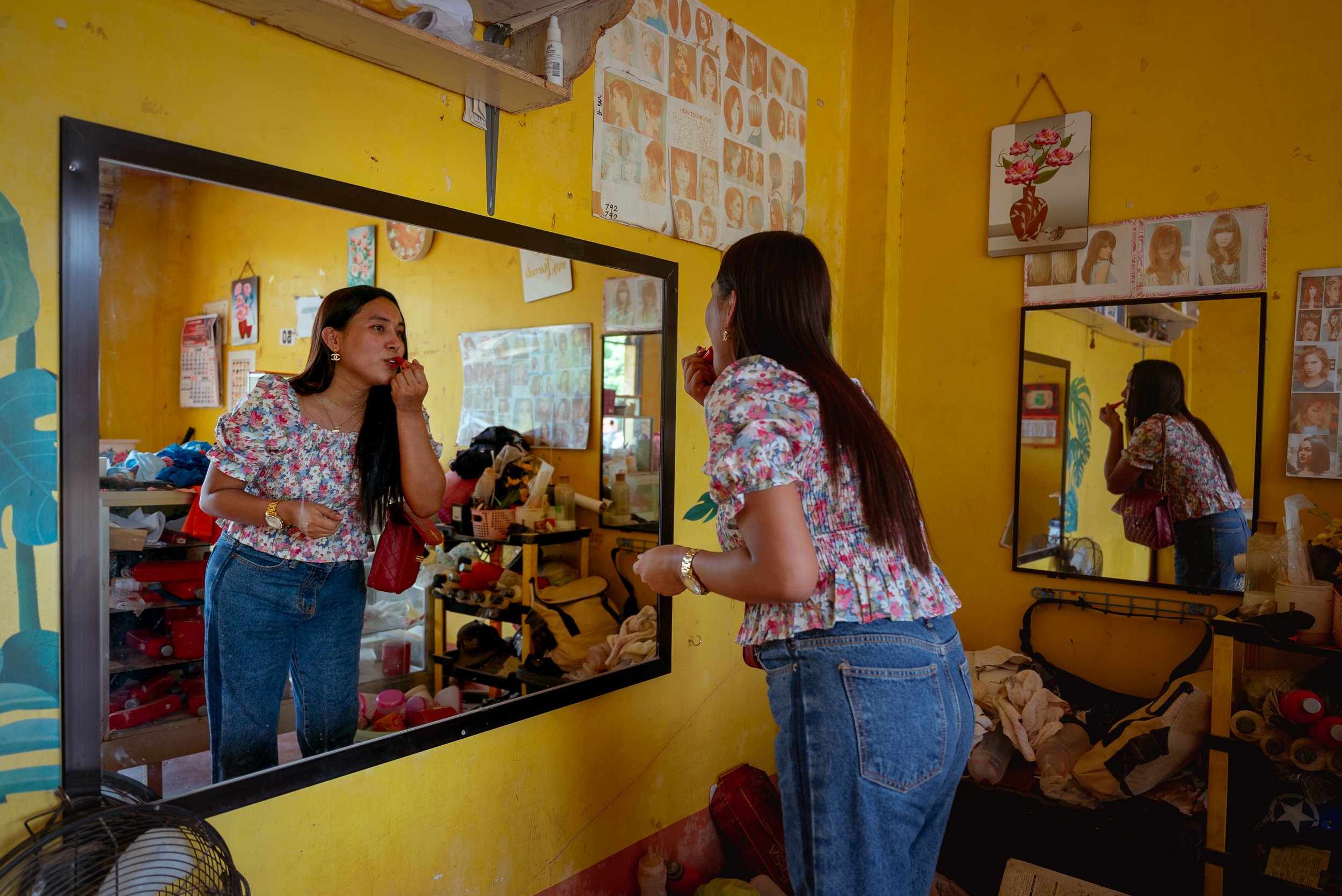
Bianca applies lipstick in a mirror at a local beauty salon in her home town in Zamboanga del Sur.

Bianca in her hometown in Zamboanga del Sur. “I wanted to have surgery not just to become a woman” she says. “The main goal is to be free. To free ourselves.”
Her gamble to feel at home in her body
Like a crucifixion, Bianca's arms are strapped to a crude plank of wood as she lies on her back on an operating table at Pratunam Polyclinic, Thailand. One nurse snaps instructions at her in broken English while another drags a crumpled pink towel across the floor using her foot, soaking up fluids from the operation before.
This clinic, located in the heart of Bangkok, offers gender confirming surgery (GCS) at an unbeatable price. While most patients can pay upwards of $20,000 USD for Thailand’s top surgeons, trans women from poor socio-economic backgrounds can receive the same operation from Dr. Thep Vejvisith for just $2,100 USD. But for Bianca, who has been dreaming of GCS since childhood, this clinic is a far cry from the hospital where she had breast augmentation back home in the Philippines. In the pocket of a hospital gown, she has snuck a rosary given by her mother as a goodbye gift upon leaving her small rural village in Mindanao. As Dr Thep starts injecting her with large syringes of liquid, it dawns on her that she’s about to do the 2.5 hour-long reconstructive operation on local anesthesia. She begins to pray.
This story unveils the lived experiences of trans women like Bianca for whom Dr Thep's low price point offers a rare lifeline. But it also describes what realities they are faced with once they arrive.
Video, photo and written reporting for CNN. This story is part of a long-term personal project investigating transgender healthcare in Asia, previously featured in Longreads and republished by the South China Morning Post.